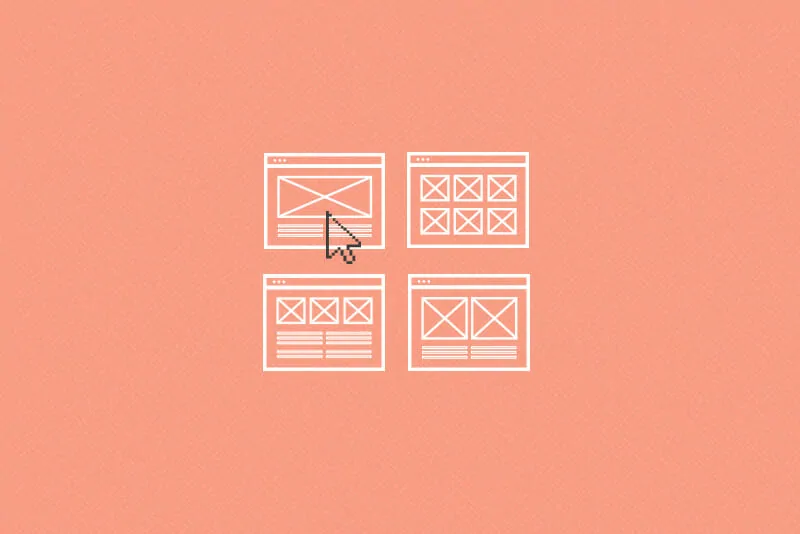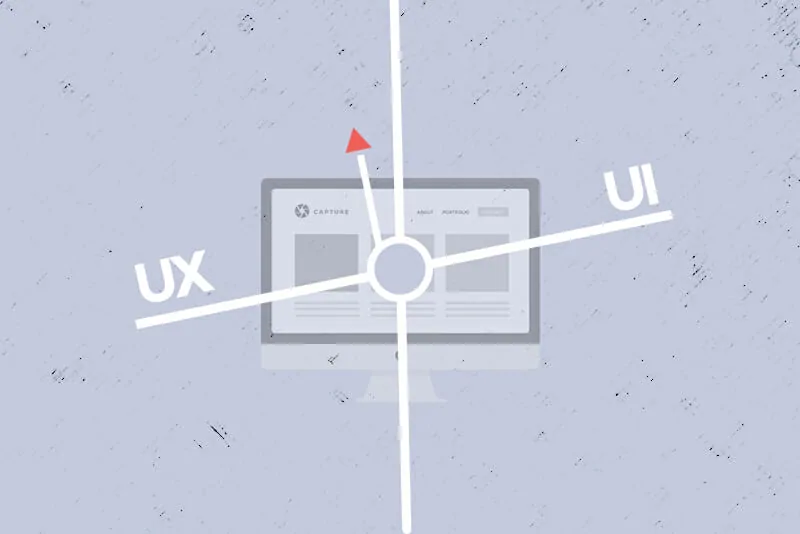Why Should UX Designers Learn to Code?
Should designers learn to code? You bet — here’s why!

You’ve put in the work to establish yourself as a UX designer, learning the UX design process, the elements of user experience, and more. And maybe you’ve established your UX design career or you’re looking for a UX design job. So… why should you learn to code?
I understand the apprehension, but rest assured, there are legitimate reasons why you should go the extra mile and learn to code. Read on to find out why.
Table of Contents

Why UX Designers Should Learn to Code
Careers in the tech industry offer schedule and location flexibility, competitive salaries, and a leg up on that always elusive work/life balance. If that’s not enough, the skills applicable to working in tech aren’t even limited to tech! Tech skills are basically life skills.
Even so, the idea of tech can sometimes seem daunting. In my case, I’ve been around computers and information technology since their earliest days, using dial-up modems to call locally hosted bulletin board systems in the pre-world-wide-web dark ages.
Still, I always felt tech was over my head. I used computers and some basic front end coding skills (before they were even called that) as a vehicle for my teenage creative projects but I thought tech was for hardcore PhDs in computer science (which, turns out, I was wrong). I was a creative type, I told myself. Tech was beyond me!
Looking back, I now know if I’d delved deeper into coding it would’ve benefited those creative projects. Some of the folks I knew who tinkered more seriously with programming languages went on to work in impressive tech careers or brought those skills to bear in other, equally rewarding jobs, while I took a more…roundabout path into the world of adulting.
That being said, not everyone who winds up in tech gets there directly through coding. It turns out tech is, above all else, an industry of creativity and innovation. Because of that, there are multiple paths into the industry and not all of them are developer-forward.
User Experience (UX) Design is one tech career path that seems to be more about creative vision than computer science. In its quest to provide end users with the most positive interactions possible, UX Design draws on everything from visual design to ergonomics to human psychology.
For those with a creative/designer bent, this might bring to mind sleek structures, vivid colors, and the excitement that comes with reaching into your imagination and making your ideas a reality. At the same time, when you hear the term “coding,” it might bring to mind a wall of artless 1’s and 0’s or a lonely labyrinth of servers somewhere in Silicon Valley.
But coding is so much more than that. At its heart, coding is a tool that benefits every designer in bringing their ideas to life.
This is particularly true in the burgeoning field of UX. As tech industry leaders increasingly rely on design to distinguish themselves from their competition, the job market for UX designers continues to grow. And since UX focuses on having empathy for the end user experience, the more intimate the designer’s understanding of a system is, the more effective the designer will be in making sure that experience is a seamless one.
Whether you’re already a UX professional or starting on the ground floor, coding is an essential skill set for distinguishing yourself in the UX field. Here’s a look at six ways a foundation in coding will equip even the most developer-phobic designer for success.

1. Communication
The first reason why designers should learn to code is unsuspecting.
UX is about using design to improve communication between a product and its user. The best UX design is clear and effective, making the end user’s experience so smooth they don’t even think of it as having an “experience.”
But clarity and effectiveness of communication begin in the design process itself. If you can’t communicate clearly and effectively with your developers, your design is already starting off at a disadvantage. A solid foundation in coding ensures that you and the rest of your team will have a common language when talking about your design.
2. Realism and Efficiency
A working knowledge of coding will help you, as a designer, temper those amazing ideas with realistic parameters. If you have a general idea of how the infrastructure for your ideas works, you’ll have an easier time knowing what is or isn’t possible, or even how you might make the impossible possible!
Once your ideas have started to take root, you’ll be empowered to put together your own prototypes and examples to share with developers, cutting down on the opportunities for misunderstandings or nuances being lost along the way.
3. Creativity and Confidence
Design is an inherently creative pursuit. To stay on top of things as a designer, it’s important to keep that creativity honed. Learning new skills is one way to keep your mind agile when thinking about problems and their creative solutions.
The process of learning to code itself will be a great workout for your creative muscles and at the end of the journey you’ll be equipped with a new, concrete set of skills to add to your arsenal of success. Not only will those skills pay dividends in your work as a designer, but they’ll provide an added boost of confidence in navigating the world of tech, where coding is a universal language.
4. Employment Flexibility
Different employers will have varying expectations when it comes to skill sets for UX designers. Regardless of the specific employer, a working knowledge of coding will always be a benefit to you.
A small start-up, for instance, won’t have as many employees in general, so the more multi-faceted you are, the more valuable you’ll be when applying for those kind of positions. Meanwhile, large companies like Google list experience with Javascript, HTML, and CSS as minimum qualifications for UX positions. By equipping yourself with a solid foundation in coding, you’ll be ready to bring your design expertise into your dream job in the tech field.
5. Problem Solving
UX is fundamentally a process of problems and solutions. What is the problem hindering the user’s ability to have a seamless experience when interacting with a system and how can you go about solving it? Among the many benefits from learning to code, improved critical thinking and problem solving stand tall in the pack.
6. Unicorns Are So Cool Right Now
Before drawing conclusions about this reason designers should learn to code, hear us out. 👂
Unicorns and unicorn memes seem to be everywhere at the moment. Probably because people like unicorns, right? I mean who doesn’t? So why would you pass up a chance to BECOME one? A “unicorn” is a term in tech hiring describing a person who is both a developer AND a designer. But there doesn’t need to be anything mythical about this creature.
You can take steps right now to make the myth a reality and position yourself as irresistible to employers. While you’re reading this, tech employers are on the lookout for designers who can code. Why shortchange yourself? Add that much needed flexibility and versatility to your arsenal of success and vault yourself into legendary status.
Sign up for the Skillcrush Free 10-Day Coding Bootcamp and start learning the skills that will take your creativity to the next level!
PUBLISHED: January 9, 2017
UPDATED: January 17, 2023







